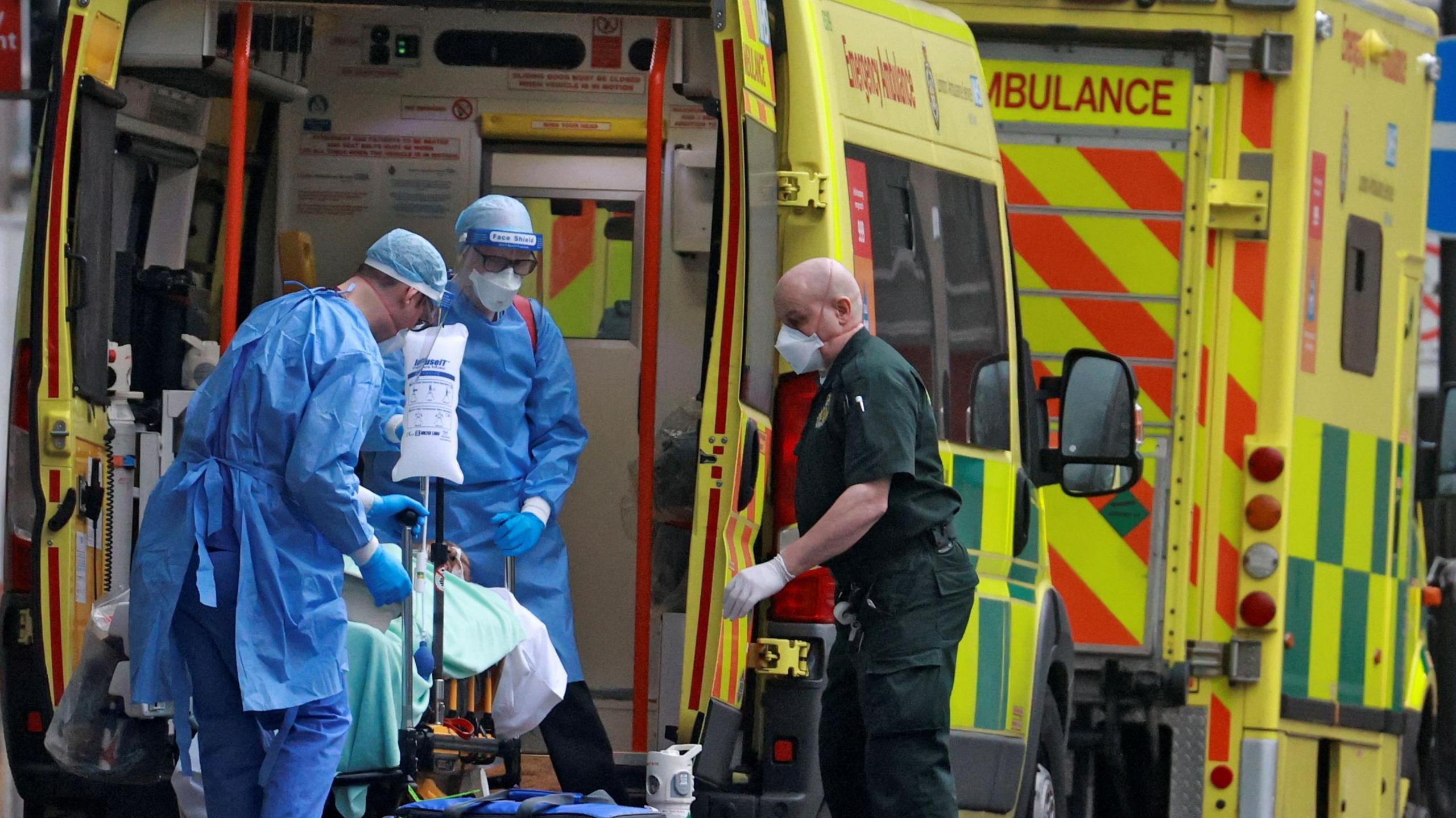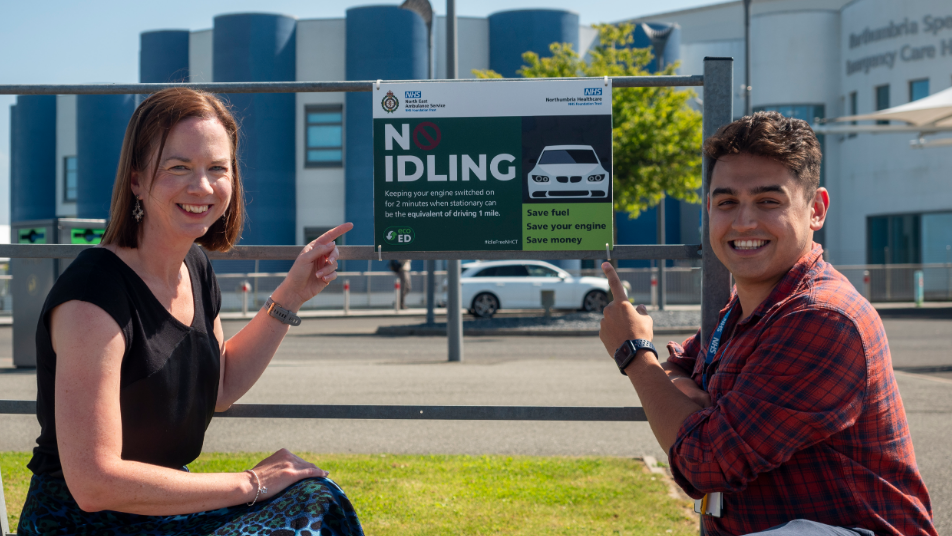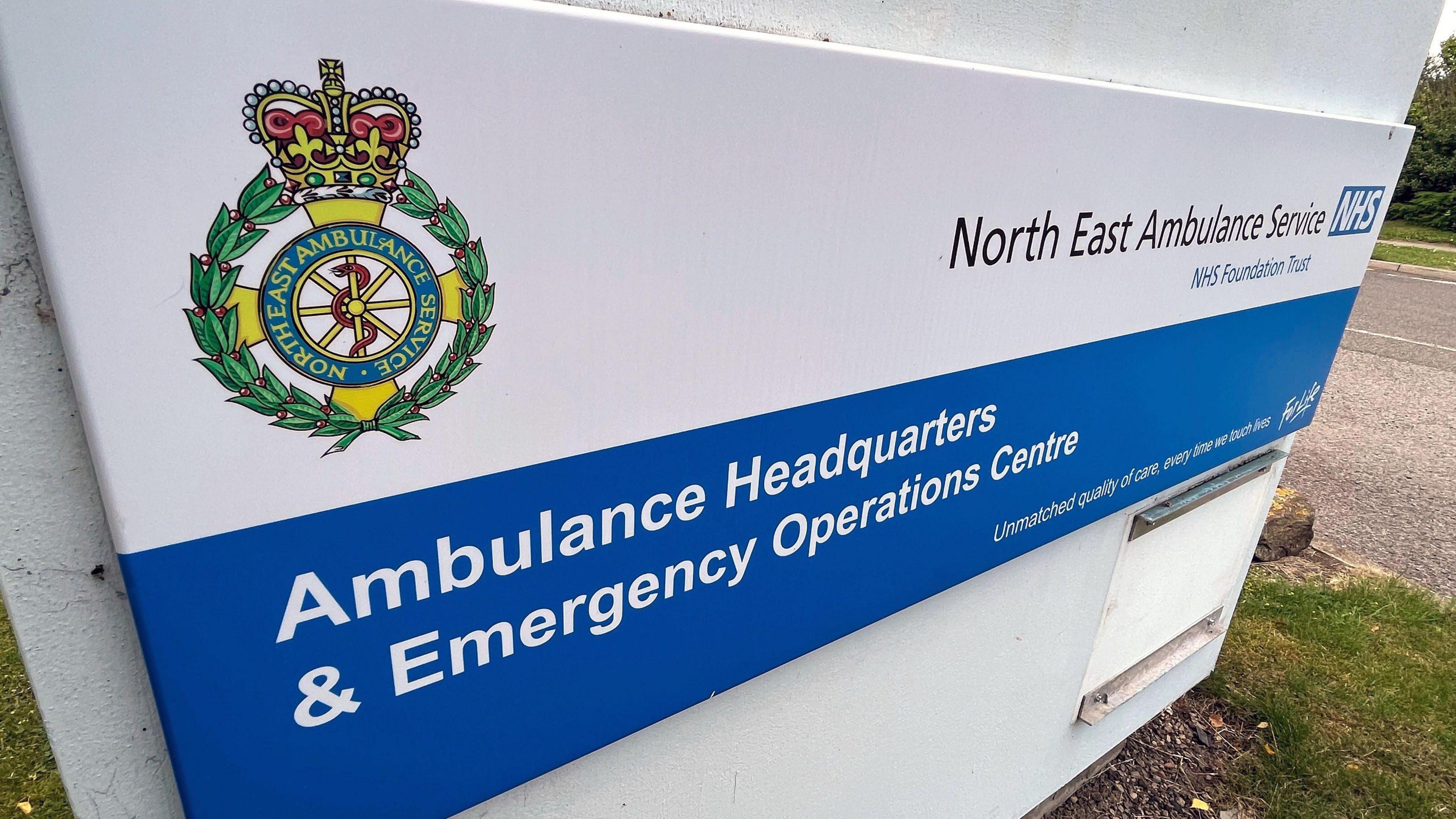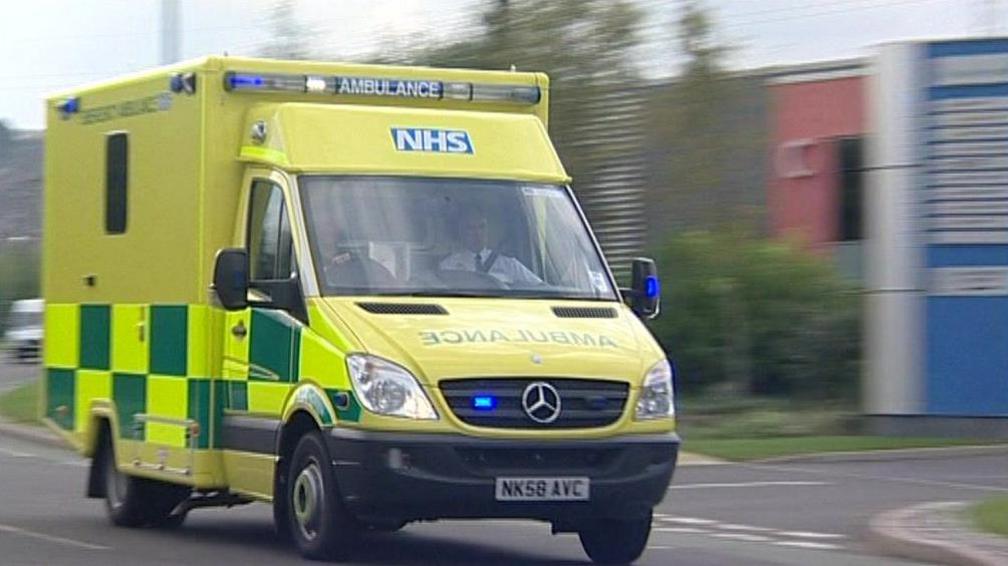Ambulances to turn off engines to tackle pollution

North East Ambulance Service crews will switch off their engines at hospitals
- Published
Ambulance service crews will switch off their engines at hospitals, where possible, to help improve air quality.
The North East Ambulance Service (NEAS) said it would apply the principle to the more than 400 of its vehicles on the road "at any given time".
It comes after Northumbria Healthcare NHS Foundation Trust and Newcastle Hospitals signed a commitment, alongside NEAS, for ambulances stopping at Northumbria Specialist Emergency Care Hospital in Cramlington, Northumberland, and Newcastle's Freeman Hospital and Royal Victoria Infirmary.
Martin Gibson, environmental sustainability manager at NEAS said: "We think we can make a significant impact on the health of our local population".
NEAS said it would widen the commitment and apply it to all ambulance crews operating across the north-east of England.
"There will be some occasions when it isn't possible to turn off engines, such as when they need to cool or warm their vehicle or using critical equipment," Mr Gibson added.

People are also being encouraged to switch off their engines when picking up and dropping off at hospitals
Whilst the "no-idling" commitment, which has been signed by the chief executives of all three trusts, primarily focuses on ambulances, it will also be extended to public car parks and drop-off bays, Northumbria Healthcare NHS Foundation Trust said.
It added that leaving engines running whilst stationary concentrated harmful emissions, such as nitrous oxide, which could have damaging health impacts on patients, staff and visitors, especially those who were vulnerable or with underlying health conditions.
Follow BBC North East on X (formerly Twitter), external, Facebook, external and Instagram, external. Send your story ideas to northeastandcumbria@bbc.co.uk
- Published16 August 2024

- Published18 July 2024

- Published28 May 2024
